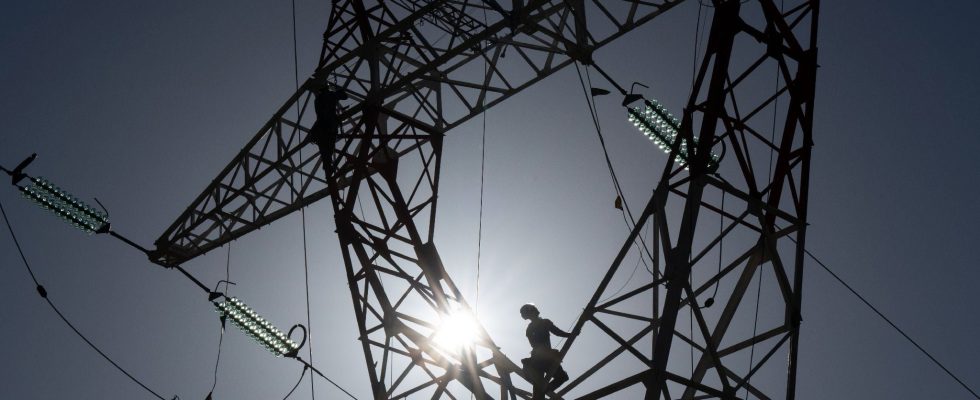Will the French keep the habit of doing the right thing when it comes to electricity consumption? As winter approaches, the electricity transmission network manager (RTE) presented this Wednesday, November 8, its outlook for the 2023-2024 season. After difficult months in 2022-2023, and the fear of power cuts, the situation seems to be “much more favorable”. The risk of a supply-demand imbalance is classified as “very low” in November, then “low” in the following months. The restart of part of the nuclear fleet in production, as well as significant hydraulic capacity this year, contribute to this renewed sense of calm.
This positive outlook is, however, based on a central assumption: that consumers continue to conserve electricity. “Last winter we saw an unprecedented drop in electricity consumption which was maintained throughout the spring and summer,” explains Thomas Veyrenc, member of the RTE board of directors, responsible for the economy. Last year, France reduced its electricity consumption by around 8% compared to the period of 2014-2019. “And we will remain at this level during the winter,” he assures. Two reasons for this: “Electricity prices are still high and there is still an incentive to save energy, thanks in particular to the government’s sobriety plans”.
Since 2021, the regulated electricity price in France has jumped by more than 30%, and if the increase is now contained, it is expected to continue, with a 10% increase planned for February. “These increases are starting to be felt on the bill, obviously this encourages consumers to be more careful,” underlines Nicolas Goldberg, energy expert at Colombus Consulting.
“We will not go back”
Between eco-friendly gestures, or protection of the wallet, operators still have difficulty identifying precisely what guides the sobriety gestures of the French. But if “the share of the price effect is difficult to determine”, according to Xavier Piechaczyk, the boss of RTE, it still seems to occupy a preponderant place. Last spring, the company conducted a vast opinion survey with Ipsos on nearly 12,000 people: 70% of respondents said they had lowered the temperature in their home at least occasionally during the winter. And nearly 80% of them put forward financial arguments to explain these actions. Among individuals who reduced their consumption, only 20% cited environmental reasons.
With prices remaining high, the persistence of sobriety efforts among individuals is therefore a solid hypothesis. “The way in which prices are structured until the end of winter, combined with communication campaigns, leads us to believe that, between now and the end of winter, consumption will not rebound,” underlines Xavier Piechaczyk.
Repeated messages are also starting to have their effects. “There are elements that remain, such as lowering the heating to 19°C in homes which everyone has heard about by now,” says Nicolas Goldberg. Added to this are virtuous behaviors, now regulated by law. “The decline in the use of air conditioning, or outdoor heaters for terraces, are regulations which suggest that we will not go back in time.”
Moreover, RTE’s prospects are in line with those of Enedis, the network subsidiary of EDF. “There is on average a 9% drop in consumption compared to previous years,” Marianne Laigneau, president of the Enedis board of directors, indicated in early September. She then specified that efforts to reduce consumption had continued in businesses and individuals. Proof that “changes in mentality” are underway.
.
